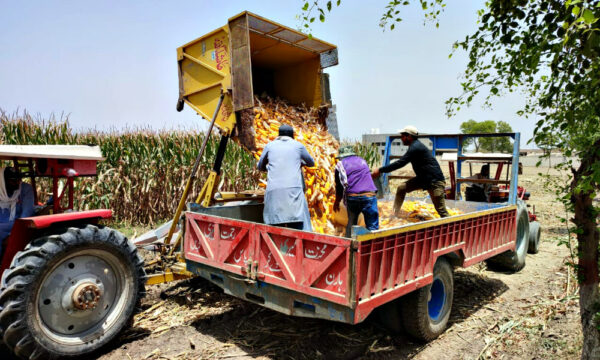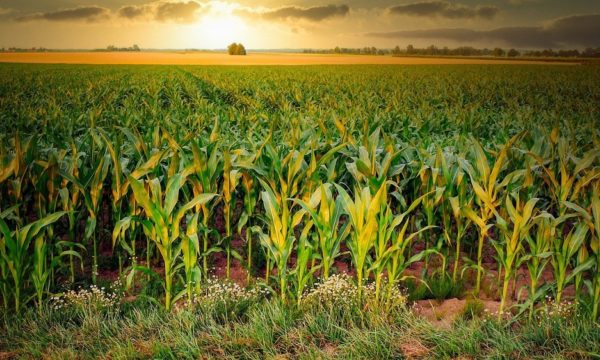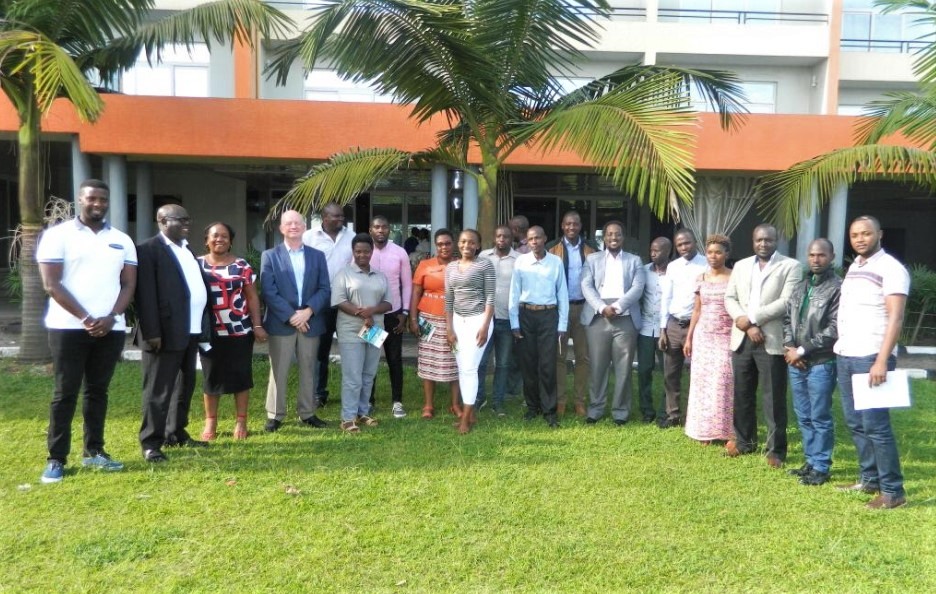
The role of extension staff in reaching smallholder farmers in Africa with relevant agricultural information cannot be underestimated, writes Abigael Mchana, Communications Officer, and Henry Mibei, Manager, Digital Development at CABI’s Africa Centre in Nairobi, Kenya. They are few in number compared to their clients in need of their expertise and often operate with scarce resources in their attempts to drive food security efforts in their localities.
In most cases extension personnel require additional information support in order to relay timely and actionable information, but unfortunately miss out on training opportunities due to insufficient up-to-date training materials, among other myriad factors.
Paper-based content that are used by many wear out over time, are not user-friendly, can be bulky depending on the format and have cost implications whenever they need updating. Additionally, digital tools addressing key commodities in specific regions are not readily available and require considerable funding to train and roll out to extension staff.
A digital learning project in Rwanda aims to address agricultural knowledge gaps by developing extensionists’ capacity to effectively use digital tools and increase availability of user-friendly digital maize production materials.
In partnership with Cultivating New Frontiers in Agriculture (CNFA) and the Rwanda Agriculture and Animal Resources Development Board (RAB), CABI developed and piloted a digital learning solution for maize production in Bugesera and Rwamagana districts in Rwanda.
What is the digital tool and how does it work?
The digital learning solution is a web-based administration portal and an Android app for end users based on a custom-built software application, whose content can be accessed both online and offline.
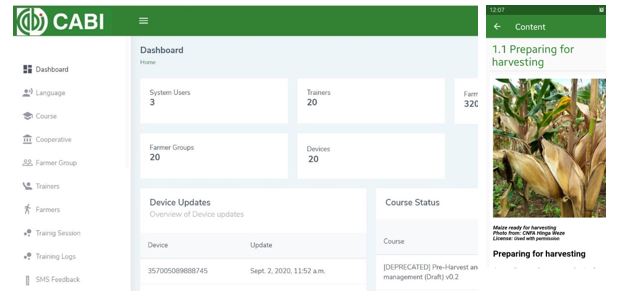
Trainers download learning materials, containing maize courses in Kinyarwanda and English languages, to the app when the device is online and access them offline when training farmers in the field.
Extension workers such as Farmer Field School Facilitators (FFSF) and Farmer Promoters (FP) train farmers using tablets on courses like land preparation and planting, crop management and harvest and post-harvest handling.
These courses contain images, videos and illustrations making content engaging and visually pleasing. Additionally, trainers capture data about the farmers and their training sessions within the app. This data is synchronized to the system when the tablet is online and can be viewed and downloaded from the web-based system dashboard of the admin interface.
What other tools complement the digital app?
The digital team created a public version of the mobile app, ‘Rwanda Maize Production Training App,’ to enhance understanding of how trainers use the maize content. The public app works alongside the existing private app which is only used by trainers and will be made available on the Google Play Store.
Its content will be in English and Kinyarwanda languages and will use Google analytics to track usage and user actions and journeys through the app. The app will contain a pre-defined questionnaire to help identify user groups and inform new activities for the CABI-led programme PlantwisePlus and the CABI Academy. It will also capture user fields i.e, country, occupation, districts, gender and age via a survey at start up.
What feedback and learning has been gathered on tool’s effectiveness?
A feedback mechanism was deemed necessary to evaluate effectiveness of farmer trainings following the tool’s development and pre-testing in early 2020, amongst users such as master trainers, FP and FFS, agronomists, agro-dealers and farmers.
Project partners thus developed an SMS based feedback platform and integrated it into the system that automatically sends assessment questions to farmers on their understanding of course objectives upon completing the training sessions.
Moreover, CNFA, Hamwe and CABI used extension staff ‘s feedback from on-ground trainings to further refine and improve the system, allowing for a seamless interaction with the tool.
How was capacity of trainers enhanced to use the tool?
In a 6-month pilot phase, 19 frontline trainers in Bugesera and Rwamagana districts were coached on how to conduct training sessions using the digital learning app in preparation for the maize growing season. They engaged in 2,799 sessions in total (a session equals to one trainer with one farmer on one course module).
A set of short videos was also produced to train new users on how to use the administrative functions of the mobile app.
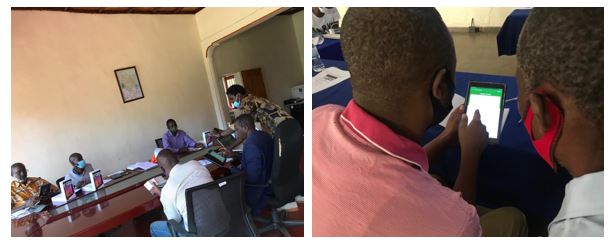
They were equipped with tablet computers loaded with the learning app and proceeded to train 343 farmers in 20 farmer groups. Farmers received knowledge on land preparation and planting as well as crop management practices and were registered into the system. Training on harvest and post-harvest handling is currently underway, following the growth stages of maize.
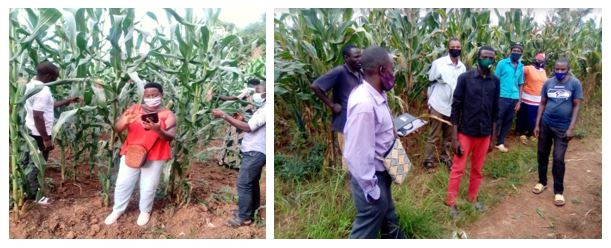
At the end of the initial pilot, an after-action review meeting – bringing together stakeholders who trialed the learning tool – will be convened to further mine learning on the project and share successes and challenges. This valuable information will be used to inform implementation activities on subsequent scale-up activities in mid-2021.
Additional information
Main image: Participants who attended a workshop on pre-testing of the digital learning solution
All photos – credit Etienne Niyigaba, CNFA.
Download the mobile app Rwanda Maize Production Training App
Related News & Blogs
Perceptions of genetically modified crops under the microscope in Kenyan study
The perceptions of Genetically Modified (GM) crops has come under the microscope as part of a study in Kenya aimed at investigating technological challenges in development and food security. As part of a project, funded by The British Academy and in pa…
6 June 2023

